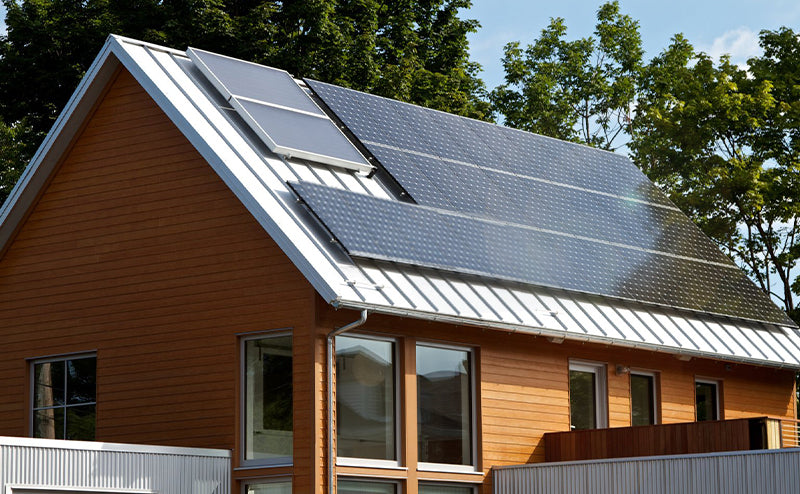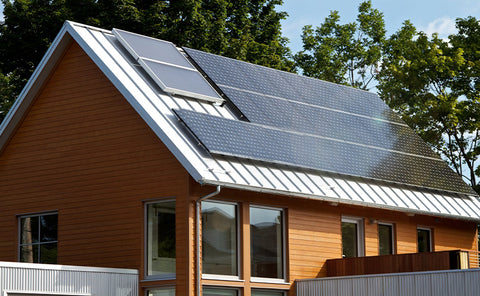

Most house owners who installed a solar system may think that it`s once for all after the installation. However, Wuzeck will tell that you are wrong. Installation of a Solar power plant is a 25 years investment, which sounds very easy when it comes to Return on Investments as the payback generally spans from 4.5 to 5 years, where your investment can reap profits for the next 20 years of your PV plant’s life. Isn’t it an easy choice to make as a buyer? Or are we missing something here?
Although solar power plants require lesser maintenance as compared to their counterpart energy generation sources, there is a significant requirement to maintain these power plants in order to make them withstand a variety of natural forces in their lifetime.
An overview of solar panel maintenance
·A tilted solar panel requires little maintenance since rain can wash away any debris.
·Two to four times a year is generally recommended for solar panel cleaning.
· Using a monitoring app, you can track the amount of energy your panel produces. You might need to clean your panels if you notice a drop in production.
·Maintenance and cleaning of solar panels are not covered under panel warranties, but if they are damaged, they will usually be repaired.
What`s next --- After a solar system has been installed
Step 1: Design and install your own PV system
You are at this stage currency where your PV plant has successfully been installed and waiting to be commissioned depending upon the type of system that you’ve installed, that is, On-Grid or Off-Grid.
Step 2: Commissioning of your PV system
After the solar power plant has been installed there are a series of tests occurs before an SPD (Solar power developer) applies for net-metering or power evacuation to the power distribution companies.
In the case of Solar string inverters, the inverter will have multiple MPPTs and Multiple string inputs designed according to the given MPPT. Let's say we have a 330Wp PV panel, a 10kW inverter with two MPPTs, and three string inputs (2x1). The inverter input will vary depending on the manufacturer. Now, the system will have 30 Nos of panels with 9.9kW DC input(30*0.330=9.9kW).
Pre-commissioning checklist for a solar string inverter
Before connecting the grounding links as a single string, the installer must check the panel-to-panel and panel-to-earth grounding links. The string calculation will involve, the open circuit voltage of the panel and the maximum MPPT input voltage of an inverter. Consider a 330Wp panel with a Voc of 45V and a Vmax MPPT of 1000V. The string sizing would be the number of panels multiplied by Voc which should not exceed the inverter Vmax MPPT i.e., 1000v. Ground Fault check. Before connecting it to the inverter, the installer must check the string for ground faults between the positive and negative end of the string and Voc between positive to earth and negative to earth. Let’s say the installer has given two strings 15 panels in one string and another 15 in another string.
Inverter Setup:
• The inverter should be commissioned according to national grid parameters.
• The user interface for each inverter varies by manufacturer. Initialization and setup of the inverter are also described in the installation manual.
• Most installers leave the system without commissioning after checking the inputs and outputs. The inverter works fine, but if you don't set it up, various events will occur that will interfere with power generation.
• All plug connections and cables should be checked regularly. To ensure stable power generation for the next 25 years, we should not stick to product quality.
Wuzeck is a professional and reputable solar company, founded in 2011, with headquarters in Shenzhen, China. Wuzeck is amongst the top players in China in Solar Panel Manufacturing, on grid and off grid solar system, Project Development, Rooftop Solutions, and micro balcony solar system and is also an Independent Power Producer.